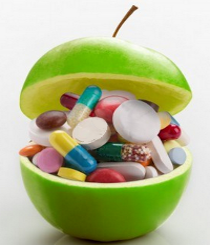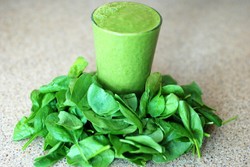Life was simpler in the old days. We were born, we learned survival skills, we hunted animals, we gathered plant life, we ate, slept, bred, and eventually we died. No governments, no taxes, no mortgages, no workplace-induced stress, and no science. Decision-making was a heck of a lot easier.
These days, our lives are considerably more complex. In the modern West, 'survival' takes on a whole different meaning. The average, healthy adult doesn't have to struggle to survive in the life-death sense. There is a blur between needs and wants, and shoulds and shouldn'ts, and the relatively basic task of feeding ourselves has become infinitely more complicated.







 Writing Posthumouslyon 05/08/2013
Writing Posthumouslyon 05/08/2013
 God or The Queen: Your Choiceon 05/04/2013
God or The Queen: Your Choiceon 05/04/2013
 Broken Ankle Boogieon 05/02/2013
Broken Ankle Boogieon 05/02/2013
 Toulouse-Lautrec: Approaching Humanity with Different Brush Strokeson 05/01/2013
Toulouse-Lautrec: Approaching Humanity with Different Brush Strokeson 05/01/2013



Comments
So true. I think some people find interpreting what they read so frustrating as a result. The health of one's family is so important that unclear and mixed messages can make decision-making about food and health incredibly difficult.
Same here - I can get lost in the details. Fascinating! Eating well should be simple, but when choice is introduced into diet, there is a lot to explore and understand!
Nutrition is a aspect of the human condition I've always been fascinated with. It's amazing how we can control our health and well being by eating properly and for healing, prevention I always take note of new nutritional information, I research it for myself but it always gets my attention. :)K